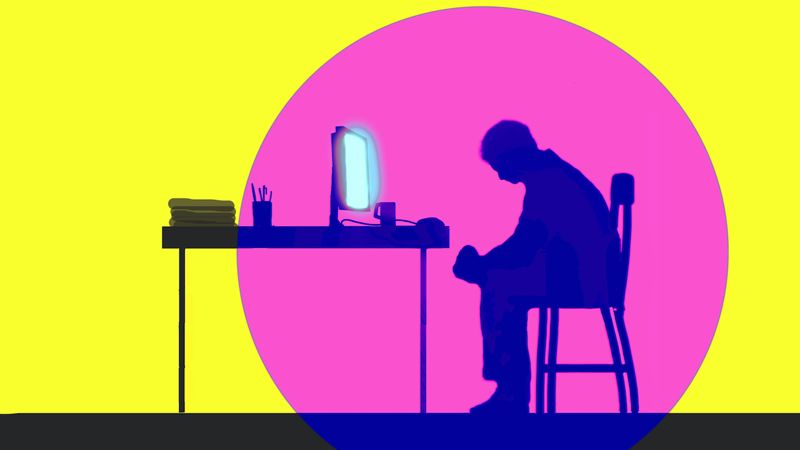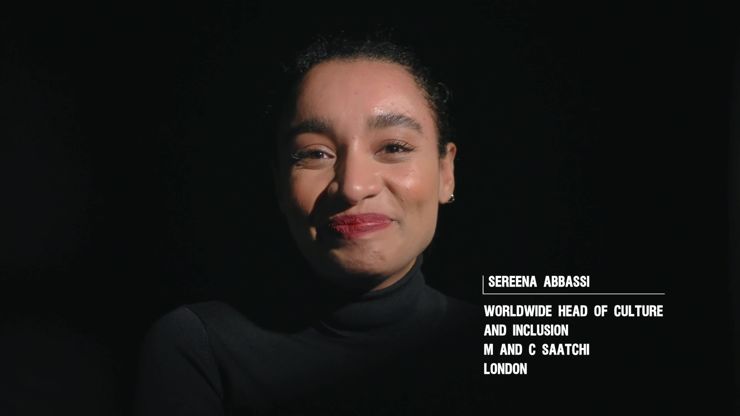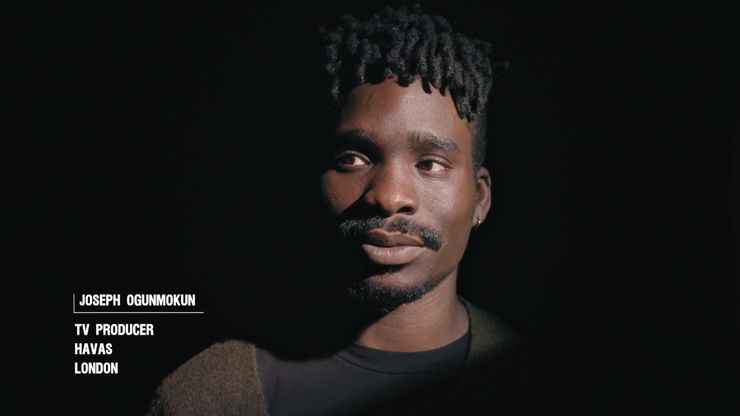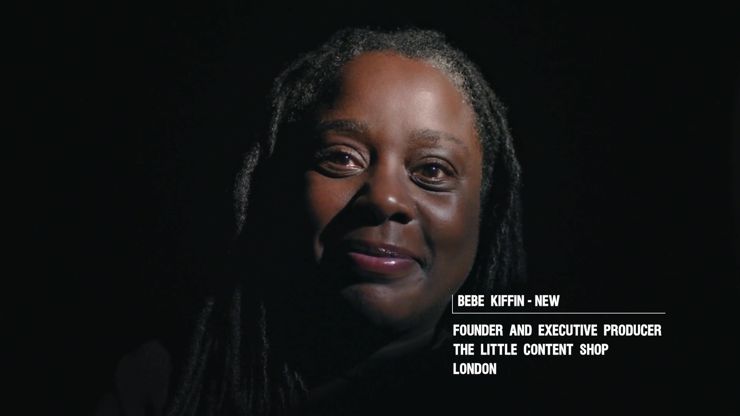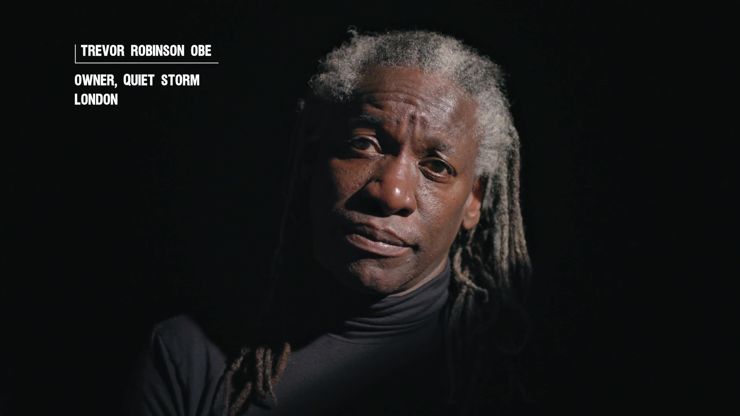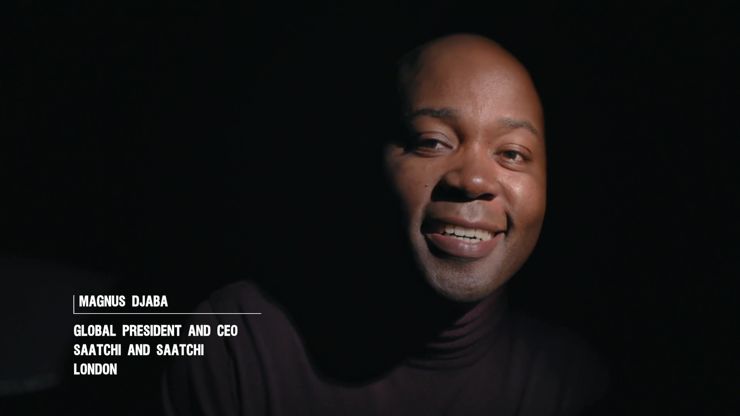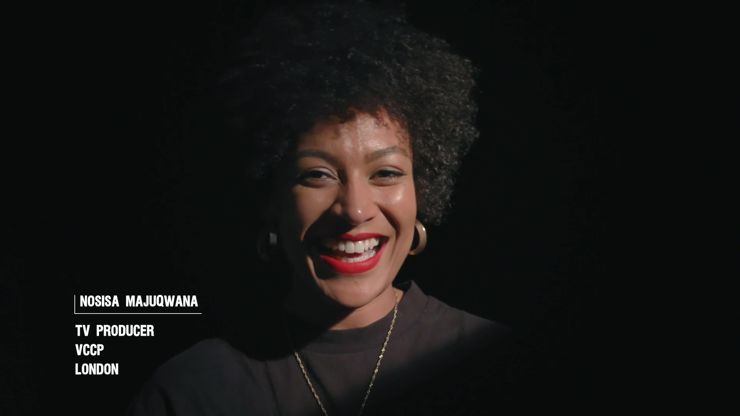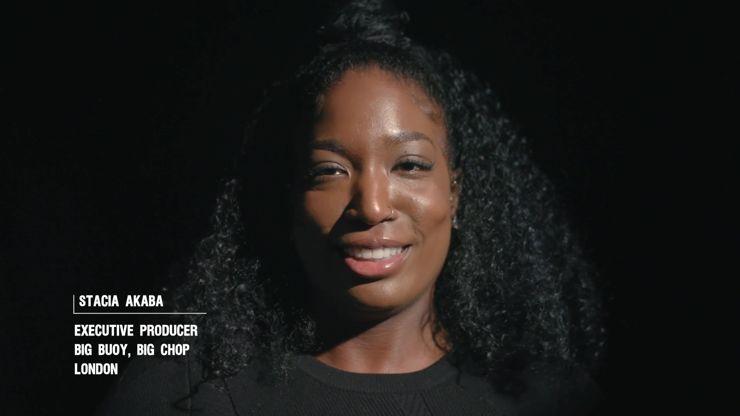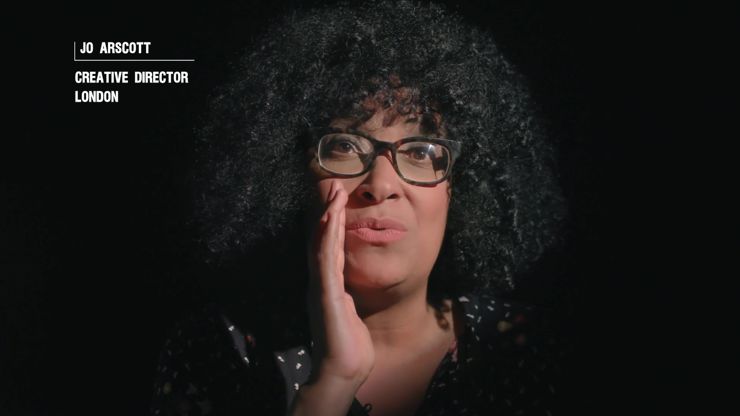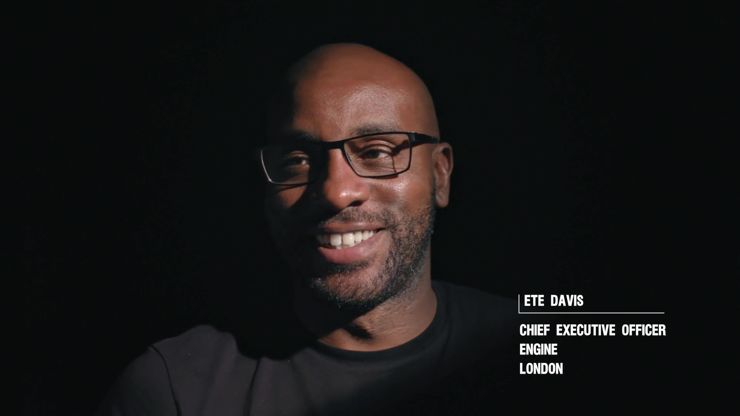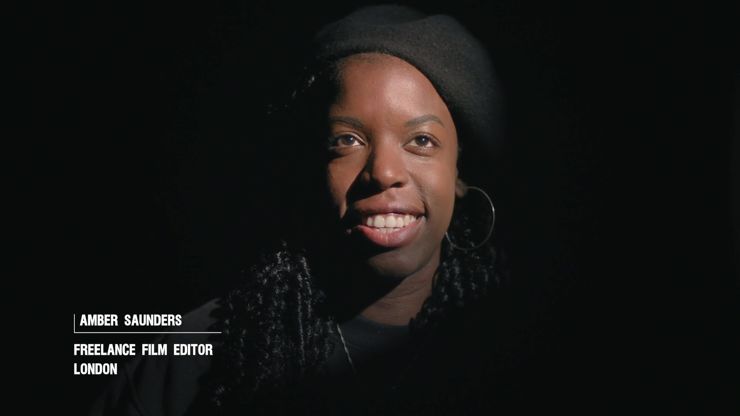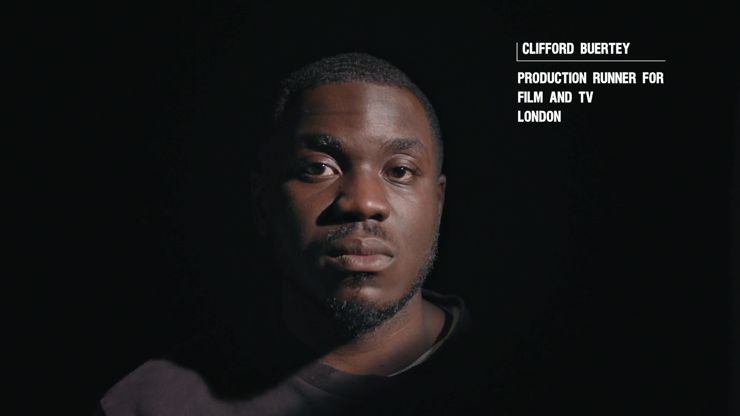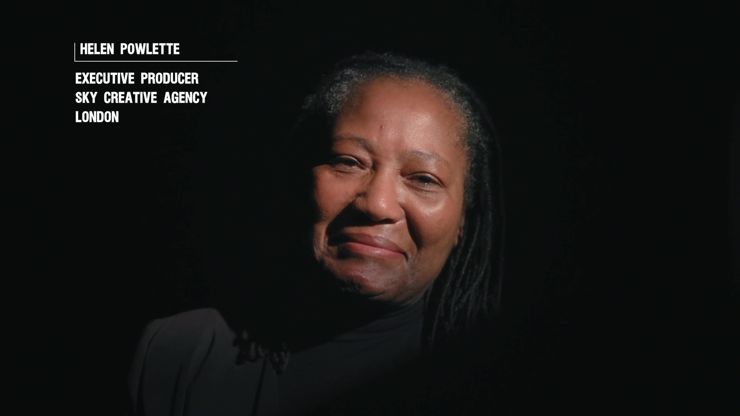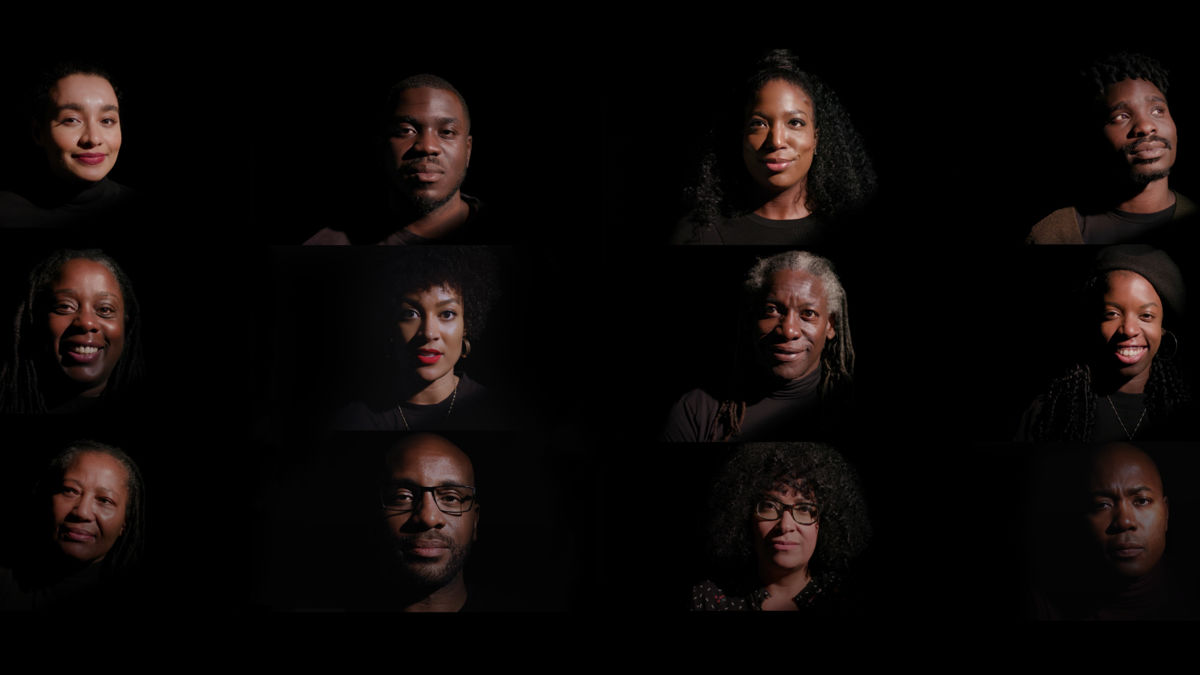Black Creative: Race and the advertising industry
Great Guns director Meena Ayittey exclusively premieres her hour-long documentary discussing what is it like to be Black and working in the UK advertising industry, alongside an in-depth Q&A on its creation.
What drove you to make the film? What was the tipping point that made you start rolling?
The idea had been on my mind for some time before I actually decided to act. I had been working in the industry for several years as a VFX artist and I always felt amazed by how few Black people I had met in senior creative roles. Whenever I did come across fellow Black creatives there was an instant bond that was formed, we knew all too well that the advertising industry in particular has a long way to go in terms of inclusivity.
When I first started in my career as an animator at Framestore, I was often met with surprise. It was obvious to me that for many people it was perhaps their first working with a Black female creative. It wasn't necessarily a bad feeling, However I was acutely aware that in this industry, people who look like me are rarely in the creative roles. I haven't to my knowledge experienced any direct racism, but I have definitely had moment where people have been surprised that I am good and my job or assumed that I did not how to use 3D software properly, or that I more junior than I was. It's a consistent feeling. For a lot of people I was the first Black creative they had worked with, I was under extra pressure not fuck up. If I fuck up, I make all Black people look bad. This feeling has never left me.
I'm Black and I'm British so feelings of being 'othered' and the notion that I will have to work twice as hard before people take me seriously are not new to me.
Growing up in the 90's I was used to perhaps a different brand of racism that my parents were exposed to when they arrived in the UK from Ghana in the late 70's. I think the concept of prejudice I grew up with in the UK is more nuanced and features heavily in the world advertising. Unconscious bias, tokenism and microaggressions are the issues that plague our industry the most.
I'm Black and I'm British so feelings of being 'othered' and the notion that I will have to work twice as hard before people take me seriously are not new to me. I have taken this all in my stride! Throughout my career, I have always found myself to be one of few if not the only Black creative in the room. Black cleaners and security guards are commonplace in most agencies. Black people in creative roles are less so. I often had moments where I thought to myself 'Are other people aware of the fact that I'm the only Black person in this the room, or is it just me?' . It has happened so many times that I have lost count. And this was all relatively recently; I'm talking, 2018, 2019 and yes still in 2020.
Unconscious bias, tokenism and microaggressions are the issues that plague our industry the most.
I started taking more notice in the last three years as the need for diversity in our industry became a much louder conversation. I was constantly reading about ' why our industry needs diversity' in Campaign and on my Linkedin feed. I felt like I had to do something. I couldn't not act.
Credits
powered by
-
- Production Company Great Guns/UK
- Director Meena Ayittey
-
-
Unlock full credits and more with a Source + shots membership.
Credits
powered by
- Production Company Great Guns/UK
- Director Meena Ayittey
- Editing NOMAD Editing Company/London
- Grade Freefolk
- Sound Design Bark Soho
- Edit Producer Harriet Mills
- Edit Producer Margaux Baruch
- Talent Nosisa Majuqwana
- Talent Bebe Kiffin-New
- Talent Magnas Djaba
- Talent Joseph Ogunmokun
- Talent Sereena Abassi
- Talent Clifford Buerty
- Executive Producer Laura Gregory
- Executive Producer Oliver Fuselier
- Producer/Animator Meena Ayittey
- DP Chris DuMont
- Editor David Warren / (Editor/VFX Supervisor)
- Colourist Holly Greig
- Post Producer Charles Gillett
- Sound Designer Andy Humphreys
- Sound Producer Cliff Wilson
- Talent Stacia Akaba
- Talent Jo Arscott
- Talent Ete Davies
- Talent Helen Powlette
- Talent Trevor Robinson
- Talent Amber Saunders
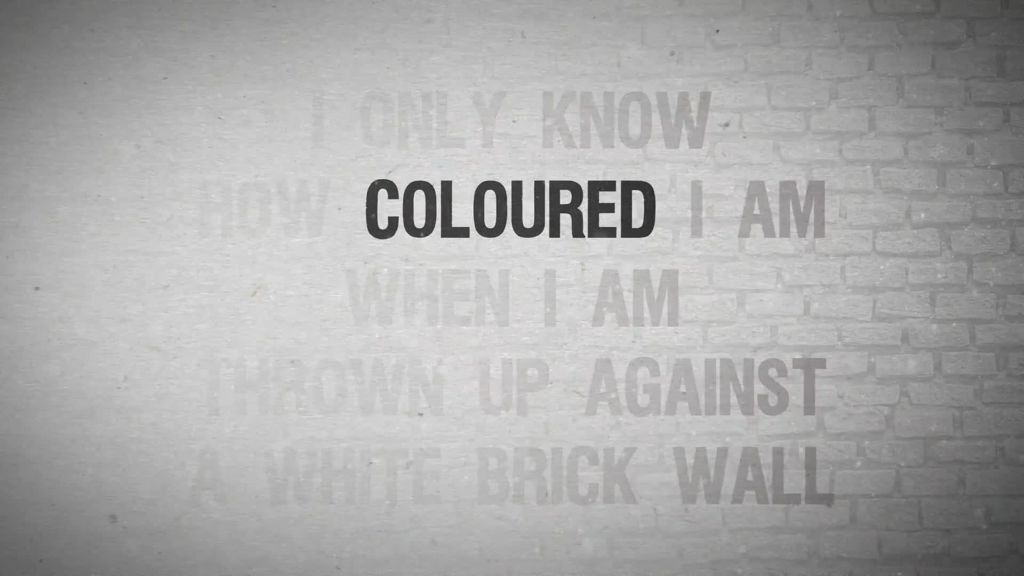
Credits
powered by
- Production Company Great Guns/UK
- Director Meena Ayittey
- Editing NOMAD Editing Company/London
- Grade Freefolk
- Sound Design Bark Soho
- Edit Producer Harriet Mills
- Edit Producer Margaux Baruch
- Talent Nosisa Majuqwana
- Talent Bebe Kiffin-New
- Talent Magnas Djaba
- Talent Joseph Ogunmokun
- Talent Sereena Abassi
- Talent Clifford Buerty
- Executive Producer Laura Gregory
- Executive Producer Oliver Fuselier
- Producer/Animator Meena Ayittey
- DP Chris DuMont
- Editor David Warren / (Editor/VFX Supervisor)
- Colourist Holly Greig
- Post Producer Charles Gillett
- Sound Designer Andy Humphreys
- Sound Producer Cliff Wilson
- Talent Stacia Akaba
- Talent Jo Arscott
- Talent Ete Davies
- Talent Helen Powlette
- Talent Trevor Robinson
- Talent Amber Saunders
Was it a challenge to get people involved? What was the process in choosing your interviewees?
This was actually one of the easiest components. As soon as I told people what I was doing I was inundated. People wanted to speak out. The unfortunate thing was that we had a small window in which we could film which meant that our schedule was pretty tight. Quite a few more people such as Lydia Amoah really wanted to participate but could not make it due to schedule conflicts.
As soon as I told people what I was doing I was inundated.
Several of the interviewees such as Amber Saunders, Joe Ogunmunkon and Stacia Aakba are friends of mine who I had met during stints at various agencies. I really wanted them to speak on camera, and fortunately for me they were happy to. Others such as Magnus and Trevor had long been on my list of people I wanted to hear from.
What was the process in shaping the discussion? Were all interviewees asked the same questions or did they lead the talking points?
I had a specific set of questions I wanted to explore and was curious to see how the responses differed. I had met several of the interviewees prior to filming and so we had conversations around the issues I wanted to discuss. This meant that conversations flowed naturally whilst we were filming.
Everyone I spoke to had a genuine interest in the topics covered. Once they started talking, everything fell into place smoothly.
The comments are both personal and candid – was it difficult to draw that out of the interviewees or were they waiting for the opportunity?
I tried to create a sense of intimacy on set as well as a safe environment to share personal stories. My crew was tiny, four of us including myself and the space we filmed in was incredibly cramped. Once you are in an environment that small, with your face so close to one another, it's almost impossible not to get a sense of the person with whom you are interviewing. I feel like everyone had been waiting for this opportunity to talk.
There was a sense of relief in the air after filming each person. There was a sense that we had been waiting for this moment for a long time.
Speaking out in our industry and to our industry, in this manner hasn't been done before on camera. There was a sense of relief in the air after filming each person. There was a sense that we had been waiting for this moment for a long time. At the same time there was this overwhelming feeling that we were doing something great. Everyone I spoke to loves this industry but felt compelled to be vocal about the structural bias that consistently affects people of colour.
How did the edit come together? Was it difficult to cut down?
We had so much great footage that cutting it down was one of the hardest parts. Because of the nature of the film I wanted to make sure that it was succinct and digestible. Dave (Warren at Nomad editing) is a great sounding board. Once we got the structure of the film in place, the rest came relatively easily. Overwhelmingly I found that many of the interviewees agreed many of my questions regarding the current state of representation in the ad industry today. So much so that I didn't want the film to sound too repetitive.
We found a way of combining everyone's voice in a way that hopefully conveys collective opinion but without sounding too samey. It was equally important to have someone like Jo Arscott involved as her opinions on some issues were of complete contrast to the others.
The film clearly addresses the problems in the UK industry, but do you think the message can be read globally or would different territories need their own voices?
I think the film could be read as a conversation that all creative industries need to be having with themselves right now, both globally and within the UK. I made this film prior to the killing of George Floyd and the BLM2020 movement.There has been a huge shift in the way that we discuss race in the sense that it has been a much more open conversation. The whole world watched with disgust and disbelief when Floyd was killed. When something that tragic and senseless happens, it in turn makes sense to begin to reflect and to question the injustice that surrounds you. What led us to this moment in time? Police brutality yes, but also questions about how Black people are seen and treated in wider society. The film looks at advertising in the UK specifically but the topics covered will hopefully resonate with people regardless of country .
I have always seen segregation here in the UK as being more class based rather than race based.
Having said that, there are obvious cultural differences differences between countries. As I mentioned earlier, my experience of racism in the UK has been somewhat nuanced and I would say even discreet. In the USA I see society being far more racially segregated. I have always seen segregation here in the UK as being more class based rather than race based. I also think the history of race and advertising in the UK differs greatly compared to our US counterparts. These are the contextual differences that I want to explore.
I would love to open this film up into a series. The history regarding race and racism around the world will be slightly different if you are in the UK, USA, or France or Brazil. I think all regions have their own stories that deserve to be told. I also think all creative industries should be explored in this regard; music, film, fashion and theatre for example.
What are you hoping to do with the film?
Finding a home for the film has been the most challenging aspect. Ironically there has been so much dialogue from broadcasters and distributors about the need for more work by Black directors, female directors and historically marginalised groups. However a major British broadcaster told me that they felt the film was 'too industry specific' to host on their platform in its current state. They asked me to make the film more 'general'. Here I am telling a story about being Black in the UK and it was 'too specific' for them! I can't take it personally though as I know they need to appeal to a broader market but it did make me laugh.
I think that there is a real hunger for content like this but the red tape and bureaucracy makes it so hard for films by Black directors to find distribution or even to get made.
Both myself and the team at Great Guns have been in conversations with streaming platforms for some time now. My worry throughout was that this movement that we are having right now needs constant ignition in order to move forward and spark any meaningful change. I feel that now is the right time for the film to be seen, regardless of how long discussions with those said platforms are taking.
I think that there is a real hunger for content like this but the red tape and bureaucracy makes it so hard for films by Black directors to find distribution or even to get made. This is one of the aspects I was not prepared for. I waited on a final response from a global streaming platform for a long time before deciding to air the whole film on your platform. I had hope that this huge global streaming platform with a worldwide reach of millions and a plethora of content that speaks to a wide range of audiences would want this film aired.
If you want change, hire more Black people. Give Black people the tools to reach seniority and to thrive!
This particular streaming platform was among many distributors that pledged their allegiance to the Black Lives Matter movement on their social media channels earlier this year. I had hoped that they shared the same sense of urgency in getting Black voices heard. Sure-change doesn't happen overnight. It takes time, and I feel that our movement towards a more inclusive and representative society will take years if not decades to achieve. However for me actions speak far more loudly than posting a Black square on you instagram account. If you want change, hire more Black people. Give Black people the tools to reach seniority and to thrive! Give Black people more opportunities, support Black businesses and Black children. Make sure that these discussions are open and consistent. This is where the real change lies. I know how idealistic that sounds, I can't help myself!
We will head to film festivals as planned as we continue discussions with distributors. My priority is to get the film out and for our industry to hear how we can bring about real and positive change. This was my focus when I made the film and it remains so today.
I am excited for people to see finally see this!
)

